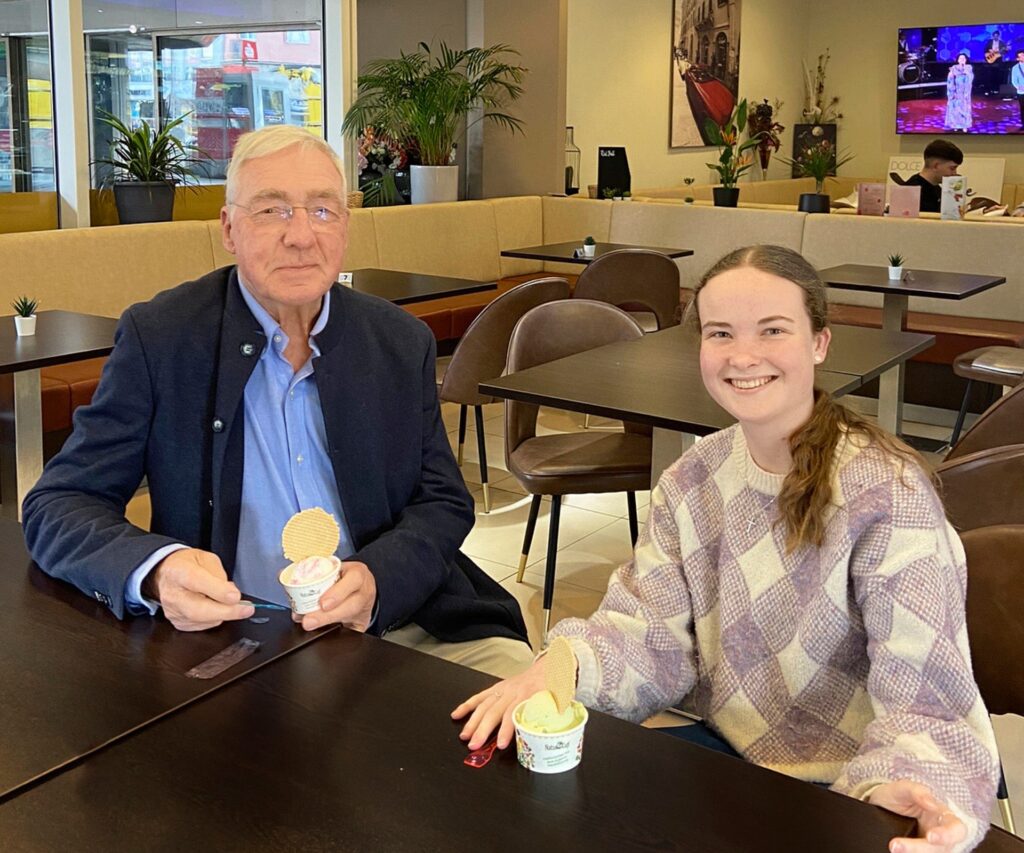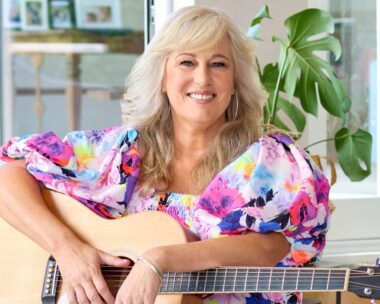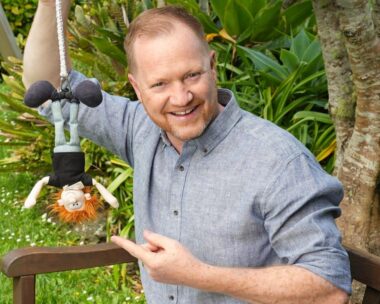It’s a moment Kelly Adie will never forget. Her 17-year-old daughter Olivia had just undergone a major eight-hour surgery. Olivia asked for water, took a tiny sip and swallowed.
“Her eyes lit up,” Kelly remembers. “The smile on her face was like a little kid experiencing something for the first time. She said, ‘Mum, it doesn’t hurt!’”
It was the best news Kelly, 51, could have hoped for. For seven torturous years, Olivia had battled debilitating symptoms that no doctor could explain. It began with vomiting and stomach pain. Then it got worse. Conditions and symptoms piled up, getting more severe. Olivia was in excruciating pain. She fainted 20-odd times a day and had almost constant migraines. She needed a wheelchair to get around.
Even worse, she couldn’t keep anything down. For two years, she tried every day to eat, but with no success. She became reliant on a feeding tube, but even that couldn’t give her the sustenance she needed because she’d vomit the liquid straight back up. She was malnourished and dehydrated, with a body mass index (BMI) of 14 – far from the “normal” range of 18.5 to 24.9.

“I was almost at death’s door,” she says.
Olivia and Kelly tried every test, treatment and specialist. While some health professionals were supportive, others dismissed Olivia’s anguish, insisting she had an eating disorder and needed only psychological help.
“We were desperate,” Kelly recalls. “It was heartbreaking.”
Unexpectedly, it was while seeking treatment for pelvic pain and bleeding, additional chronic symptoms Olivia lived with, when she finally started to get some answers in February 2023. Her gynaecologist was, thankfully, interested in the whole picture, not just her gynaecological symptoms. So when Olivia mentioned she had hyper-mobile (overly flexible) joints, the gynaecologist immediately thought of Ehlers-Danlos syndrome (EDS), a genetic connective tissue disorder. It ranges in severity, but symptoms as extreme as Olivia’s are rare. And it’s notoriously hard to diagnose, often mistaken for other conditions.

A consultation with a vascular surgeon confirmed the diagnosis and Olivia learnt her EDS had resulted in five “abdominal vascular compressions” – places where her veins or arteries were crushed, disrupting blood flow and causing a laundry list of symptoms, including making normal digestion impossible.
There was just one surgeon in the world, Professor Wilhelm Sandmann, who could address all five compressions at once, using a sophisticated grafting and suturing technique that would give Olivia the best chance at long-term health.
But Wilhelm was in Germany and the surgery alone cost $106,000. Olivia was unable to even apply for funding through New Zealand’s High Cost Treatment Pool because none of the specialists in
her region would support the application.
Kelly, who is an office administrator, and husband Bryce, an automotive technician, were forced to remortgage their home in Dunedin. Their friends, family and community rallied around them, raising $50,000. Another $50,000 came from a Givealittle page. Last September, Kelly and Olivia said emotional goodbyes to Bryce and Sienna, Olivia’s 15-year-old sister, and flew to Germany.
The surgery was, Olivia says, “brutal”. It was 14 days before she had recovered enough to leave hospital.
It may take a year for Olivia to feel the full effects of the surgery, but she can now stand and walk. Fainting and migraines are much rarer. She still vomits after eating food, but the pain is gone and the vomiting isn’t instantaneous. Tube-feeding is working. Her BMI has climbed to 17.

Most importantly, Olivia has hope for the future again. She’s planning to complete Year 13 this year, and wants to study law and science at university. She knows this is possible only because of the love and support of so many people – and one most of all.
“My mum never stopped fighting. It would have been so easy for a parent to say, ‘The doctors know what they’re talking about.’ But she questions things she doesn’t think are right.”
The support went both ways, Kelly insists. “We needed each other. I’m the mum – I’m supposed to hold it together and support the child – but I’m human too. You have moments where you feel like you can’t carry on any more.
“But Olivia’s so strong and determined. She’s a fighter. I don’t know if I could have done what she’s done. She’s the bravest person I know.
Visit givealittle.co.nz/cause/help-olivia-eat-again to support her ongoing care.
 Sharron Bennett
Sharron Bennett


